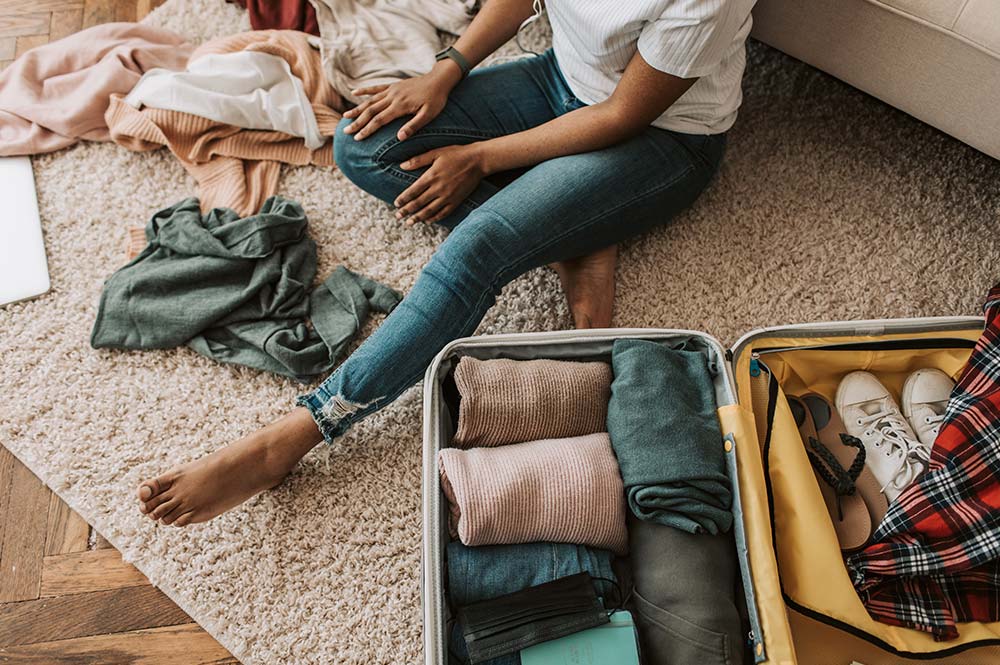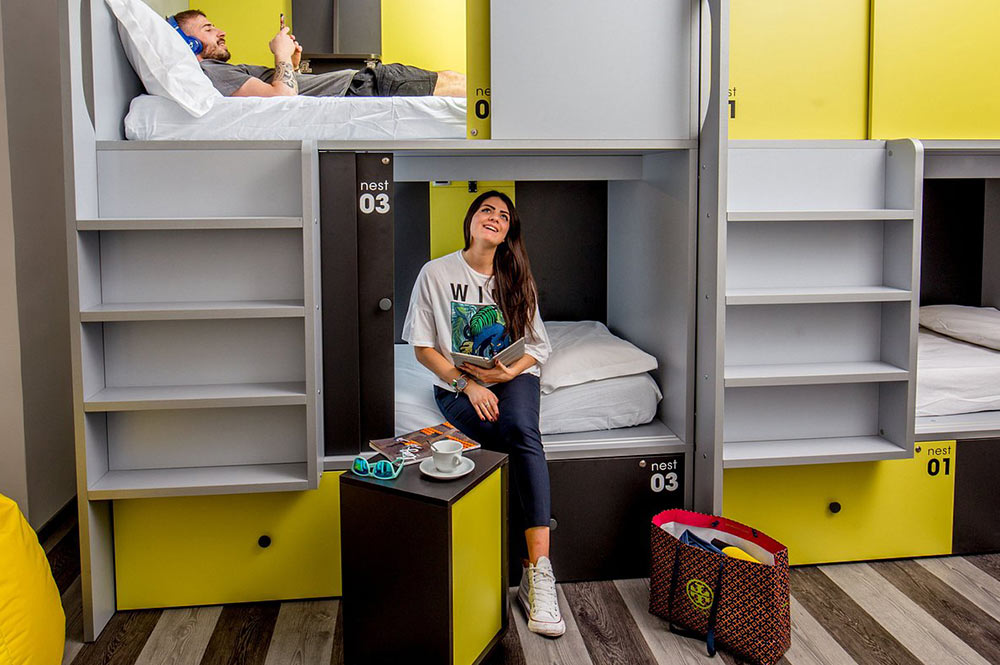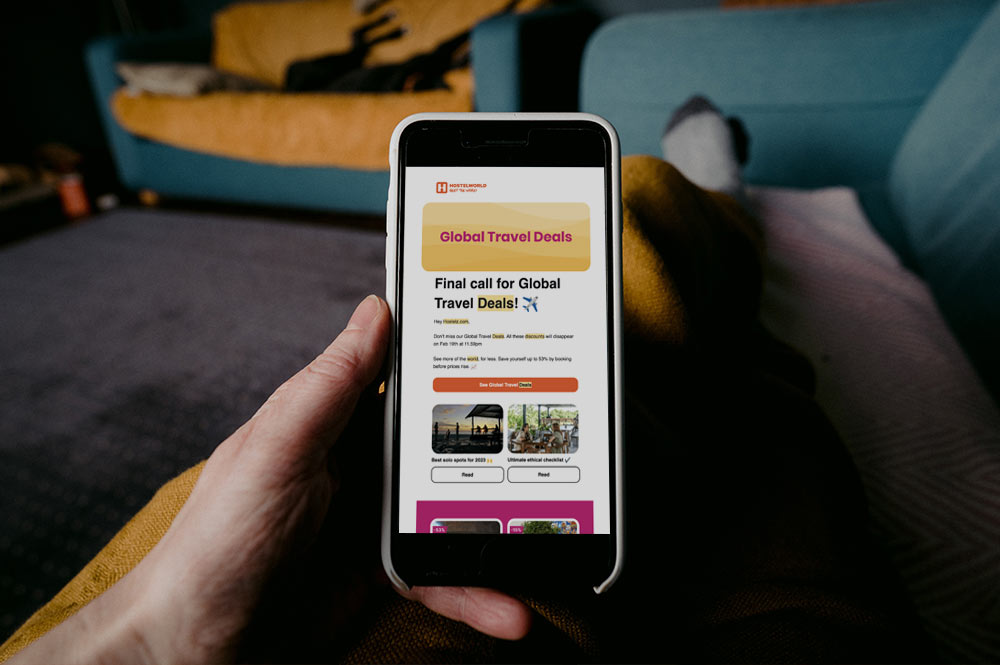Those of us here at Hostelz.com have done a lot of travelling and we have a lot of opinions about the best stuff to bring on a hostelling trip. There are a lot of books and websites with packing advice that all pretty much tell you the same things (wear comfortable shoes, don't forget your toothbrush, etc.).
During your big adventure preparations, have a look at these 13 Ideas to Save Money for Long-Term Travel.
Once you finally set off, make sure you follow these 21 Tips for Saving Money while Travelling.
The Hostel Packing List 2025
This list covers stuff you definitely should pack!
So we'll skip the most obvious stuff and tell you about a few things you maybe haven't thought of. Keep scrolling for more info!
- Earplugs
- LED Flashlight
- Hand Towel
- Quick Dry Towel
- Playing Cards
- Powerbank
- Head Lamp
- Kindle/ Tablet
- Passport Cover
- Notebook
- Day Bag
- Water Bottle with Filter (trendy now!)
- Aspirin/ Ibuprofen
- String
- Small Carabiner
- Compression Packing Cubes
- Padlocks
- Small Garbage Bag/ Dry Bag
- Sleepsheet
- ATM Card / VISA Checkcard
- Sandals (flip-flops)
- Travel Tissue Packs
- Travel Pillow
- Wet Wipes
- Fanny Pack / Hip Pack
- More Tips from the Community
- Things NOT to pack
- More Tips on how not to overpack
- Our best recommendations for backpacks
- A note about Booking Hostels + more useful guides
1. Earplugs
With eight people sleeping in your hostel dorm room, there's a pretty good chance one of them snores.
So unless that one is you, you'll want earplugs, and preferably the kind with the little string attached so you don't lose them as easily. Unfortunately we didn't have the extra $0.50 in our budget to get the string ones for the photo...
- Useful read for every hostel traveler: Hostel Etiquette: Do's and Dont's
Although they don't have a string attached, many people swear by earplugs as the best earplugs to get because they're especially comfortable and do a great job of blocking out sound.
Update: Even better, bring sleeping headphones and get a "white noise" app for your phone. I personally prefer an app that makes a "waterfall" sound. This miracle combination can drown out almost any snorer.
If earbuds are too uncomfortable for you to sleep with, sleep headphones are comfortable even if you sleep on your side, and work almost as well to block out sound with white noise.
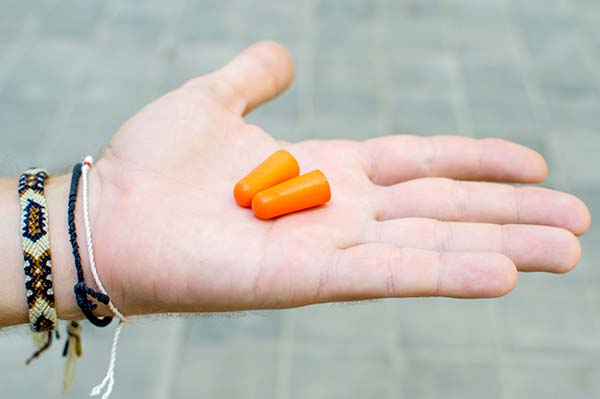
2. LED Flashlight
Once you get one of these for your keychain you'll wonder how you ever lived without it, whether your travelling or not.
Flashlights are especially handy for reading a map at night or digging through your backpack in a dark hostel room late at night (don't be ones of those people who turn the room lights on while people are sleeping to find a toothbrush).
Get a keychain flashlight with a "white LED" bulb. They're tiny, bright, never burn out, and they're super efficient so the one tiny battery will last you almost forever. They're available in many stores, or you can also get one of these online.
Update: You may not need a flashlight if you have a phone that already has one, but since phones tend to run out of battery and the LED flashlights do not, it is always a good idea to keep one on your keychain, just in case.
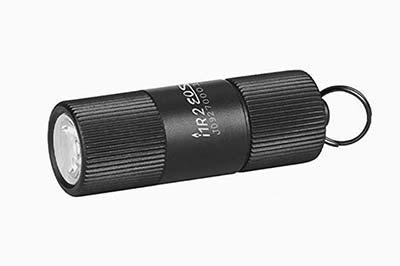
3. Hand Towel
It's a good idea to bring a towel because some hostels don't offer towels (and the ones that do often charge a fee). It is always a good idea to check if hostels provide towels.
Either way, there is no need to carry a full size towel with you. All you need is a small hand towel. Just remember to shake off a little before you start towel drying and it will work just fine. Or, if you prefer you can get an actual travel towel.
This brings us to the next point...
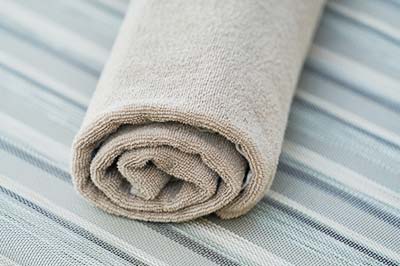
4. Quick Dry Travel Towel
A quick-dry travel towel will save you tons of space in your bag. They are lightweight and very convenient.
You definitely do not want to stuff a wet, heavy towel into your bag after you take a shower in the morning at the hostel right before you need to check out. A quick-dry towel does what it says it does—it dries quickly.
Check out the Rainleaf microfiber towel here. It is cheap and does its job.
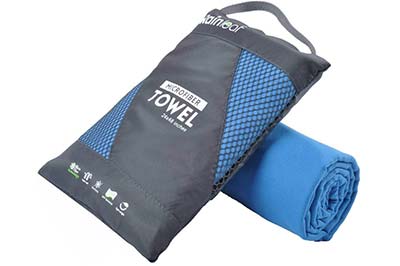
5. Playing Cards (or UNO Cards)
Sitting down to a game of cards and a beer or three is always a great way to have fun and get to know new people at a hostel. And while many hostels keep a stack of games and cards on a shelf somewhere, I’ve been in many that didn’t.
A deck of playing cards takes up barely any space in your bag, and makes for a great way to spend some time at the hostel before going out and exploring.
You can either bring a simple deck of playing cards or the very popular UNO Cards. Many travellers already know its rules. And if not, it is very easy and fast to explain.
My suggestion: I would suggest bringing waterproof cards that will not deteriorate if they get wet or battered over the course of your journey. You can find a cheap, waterproof deck here.
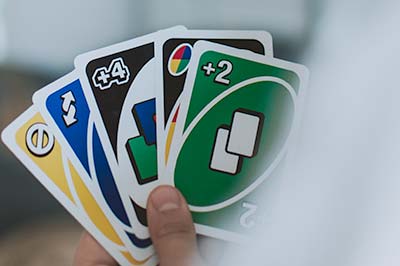
6. Powerbank
Despite the fact that most good hostels have outlets near the beds for you to plug in your phone or tablet or laptop, some don't.
And even if they do, a powerbank will for sure come in handy if you plan on wandering around outside the hostel for any extended period of time, or if you have a long bus ride on a bus without outlets.
While losing the charge on your phone isn't the end of the world, it’s still nice to have maps to figure out where you are and how to get to where you’re going.
Although, when I’m wandering around a city, I do like doing it the old-fashioned way, with a paper map and friendly questions for strangers.
That said, here is a good, reliable powerbank that is compact enough and has a high charging capacity, two qualities to look for when buying one.
My suggestion: In case you are travelling to a sunny place, I would get a Solar Power Bank.
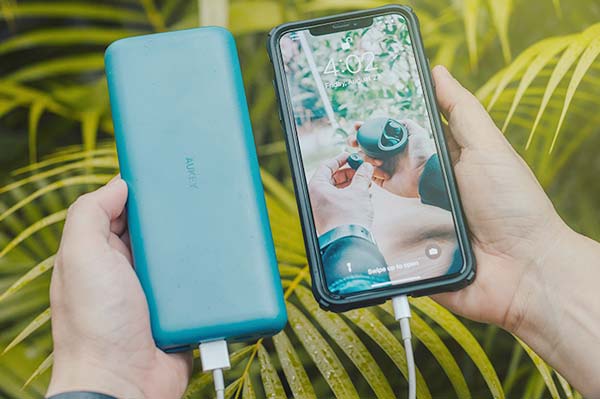
7. Head Lamp
Although not as practical for hostel stays, nor as space saving as a little LED light. A head lamp is one thing I ALWAYS pack, because I love camping and doing multi-day hikes.
A headlamp is perfect for camping, frees your arms up while you are gathering firewood in the dark. Furthermore, it can also be useful for reading a book in your hostel dorm.
Just be sure to choose one with multiple settings so you can use the dimmer light in your dorm so you do not annoy the hell out of your fellow hostellers. Here’s one head lamp swear by.

8. Kindle/Tablet
Do not waste space in your bag by packing bulky books (talked about in stuff NOT to bring). With a kindle or tablet you’ll obviously have access to any of the books you’d want to bring in physical, paper form.
I personally prefer reading real paper books with pages I can touch and flip through. But a Kindle or tablet is just much more practical if you’re backpacking/traveling for any extended period of time.

9. Passport Cover
Get a passport cover to protect your passport from any damage that may make it unreadable in a machine scanner.
You do not want to get to an airport somewhere and have a passport that’s so tattered that the machine can’t read it. If the machine can’t read it, you probably won’t be allowed to travel internationally.
My own passport is quite tattered because I have travelled all over the world with it, without a cover, and although it is still readable. I have had a few dicey situations at airports where it took a few tries before it would successfully scan.
Save yourself some worry and spring for a cover.
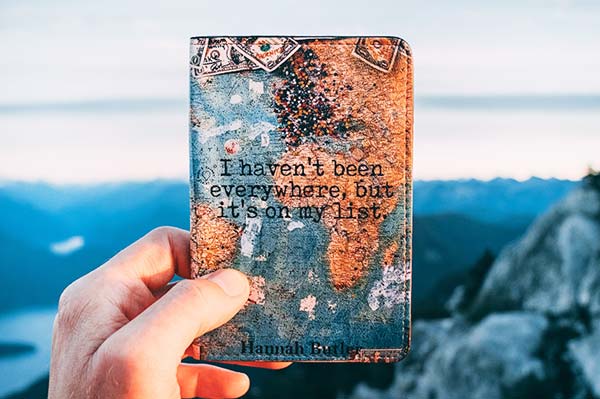
10. Notebook
A small notebook is super useful in a couple ways.
For example, while exploring the vibrant city of Bangkok or other big city, I like to jot down recommendations from locals or hidden gems I discover.
Second, it is useful for storing backup information like the address of your hostel in case your phone dies en route to wherever you are going, as is sometimes the case.
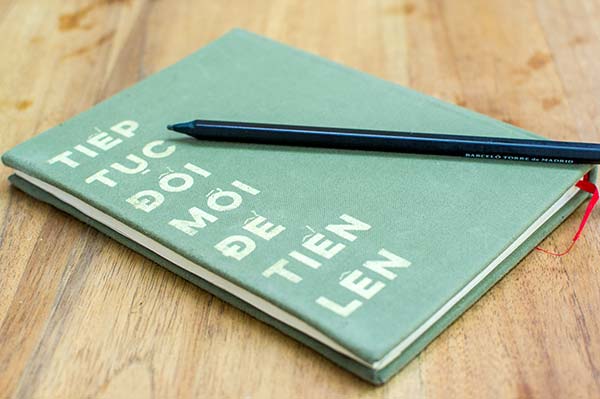
11. Day Bag
You are going to want a small bag to carry some things in while you wander around outside your hostel. I prefer one that can pack up into a little ball about the size of your fist.
It takes up almost no space in your bigger bag, and it’s big enough to carry, for example, your ipad, camera, and a light rainjacket. Here is the one I use.
You can also find ones that are a bit bigger and also pack up into nice, neat balls.
Just be aware of how much space you are willing to sacrifice in your bag if you go with a bigger one.
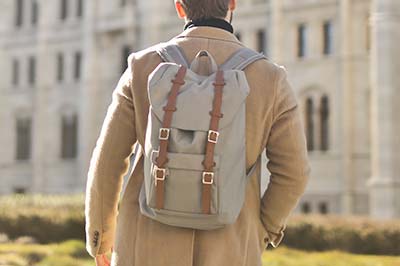
12. Water Bottle with Filter to Refill
The latest trending object of travellers is bringing the own water bottle to refill. We have seen this a lot now. It started in 2018 and 2019, and since 2020 a refillable water bottle seems to be the absolute must-have travel gadget.
A very popular choice is the "Brita Premium".
This water bottle and filter feature durable, BPA-free and hard-sided plastic. The filter itself is incredibly easy to clean.
Personally, I thought getting a water bottle to refill will be annoying and just one extra thing to carry. However, that "logic" did not make much sense. Every travellers knows, you have a water bottle next to you all the time.
Another interesting detail, you might be saving money along the road. How? Well, we have seen many restaurants and hostels in South America and Asia offering free water refill if you bring your own bottle.
- Useful read: 14 Ideas to Save Money for Long-Term Hostel Travel
Therefore, you can simply get a good-looking water bottle and reduce much plastic waste along with it.
My suggestion: Get a water bottle with around 750ml to 1l. 1.5l seems too big and less than 750ml is simply too small. Pay attention to this detail before you get one.
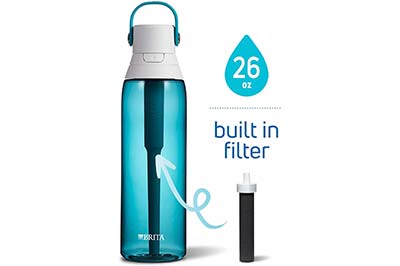
13. Aspirin/ Ibuprofen
Especially useful if you are staying in party hostels where they feed you free alcohol, or if you just need some relief after a long night out and one or two too many drinks.
It sucks having to travel around hungover, so if you do plan on doing some partying:
- drink water
- pack a small bottle of aspirin or Ibuprofen to soothe the next day's angry revenge.
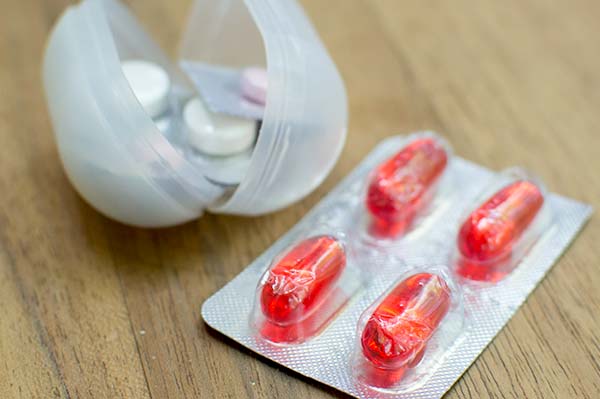
14. String
A small ball of string can come in handy for drying your clothes. It is especially useful if you also plan on doing any camping during your trip.
You can use it to hang your lantern at the campsite, dry clothes or make a makeshift lean-to with a tarp in a pinch.

15. Small Carabiner Clip
Personally, I think bringing a small carabiner can be even more handy than the ball of string. Especially when backpacking, sometimes you will hang stuff on your backpack or somewhere else. A carabiner is always useful.
There is many small and lightweight Carabiner. I always have one with me. I see it as part of my backpack actually.
And when I need it, it is already waiting for me, ready to be used.
Therefore, yes, bring a small, lightweight Carabiner.
Important: Get a good one with Screwgate Locking. The Spring Clips are much cheaper but very annoying and you can lose them easily.
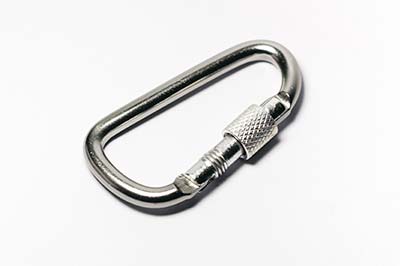
16. Compression Packing Cubes
These little miracles will both save space in your bag and help you separate your used, smelly clothes from your clean ones. While a garbage bag manages to take care of the latter (although not as well), packing cubes are a super useful and more durable way to free up some extra room in your pack.
You can find a good compression packing cube here.
17. Padlocks (Always!)
This is to keep your belongings safe!
Hostels do not always offer lockers, but when they do, usually you have to pay for the padlock, so bring one with you.
Just as importantly, you need a lock that can fit through the holes in your backpack's zipper pulls so that you can lock your backpack.
Why?
Well it may not keep someone out of your pack for long, but it will discourage pickpockets from taking stuff out of the back of your pack while you're wearing it... which does happen (particularly frequently in Barcelona, Rome, Saint Petersburg and other major tourism-heavy cities)!
If your big lock doesn't fit through your zipper pulls, then also get a smaller one that will.
Combination locks are probably best since there's no key to lose. This one is one of our favorite locks.
Characteristics of the best hostel padlock:
- Small size so it fits every lock
- Get one with flexible steel cable, they are usually longer
- The cable should not be too thick (diameter 4.37mm is a good size)
- lightweight
- Set-Your-Own Combination Lock
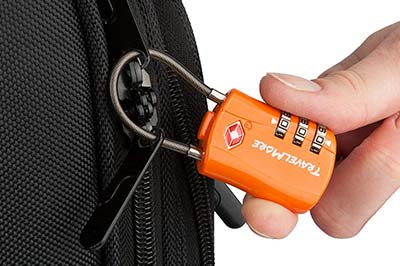
18. Small Garbage Bag/ Dry Bag
If you wear your socks a couple days while you museum hop, then put them in your backpack after you change, pretty soon everything in your bag will smell like feet.
Many travelers bring a small plastic garbage bag for the dirty laundry. You could also even use some large ziplock bags to be extra safe.
Personally, I prefer using a Dry Bag over a plastic bag. First, plastic bags can break. And second, handling a plastic bag in the early morning while people in the dorm are still sleeping...well, plastic bags make an annoying sound.
Therefore, I personally always travel with my dry bag and use it as my laundry bag.
Another advantage of the dry bag, you can use it actually as a dry bag when you go scuba diving or join any water-related tour.
Some characteristics of a a dry bag to look out for:
- waterproof
- durable
- comfy straps
- visible color
- correct size for you (I recommend 5l, this is usually enough)
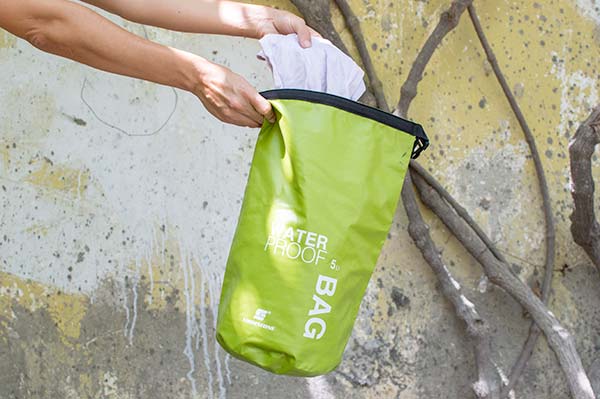
19. Sleepsheet
Years ago people staying in hostels were expected to bring their own bed-sheet to sleep in.
Today all hostels provide sheets, but a few hostels may still charge an extra fee for sheets.
Even though it isn't necessary, some people still like to have their own nice sleep-sheet to sleep in every night. (Sleeping bags are usually not allowed by the way.)
So what's a sleep-sheet? It's basically a regular bed-sheet folded in half, and it's usually sewn part way up the side.
You can make your own, or buy a nice silk sleepshet online.
20. ATM Card/ VISA Checkcard
ATM machines are everywhere and they're a good way to get local currency without paying high exchange rates.
Get a card that's also a VISA Checkcard so you can use it like a credit card (which is probably a better idea than using a regular credit card because most credit cards charge an extra fee for purchases in a foreign currency, but a checkcard usually doesn't).
If the magnetic strip is nearing the end of its life, get a new card before your trip.
One more thing, before your trip, memorize the credit card number and expiration date of one of your credit cards (preferably one that you're not taking with you).
Even if everything you own is lost or stolen, there's a lot you can do with a memorized credit card number in your head, including making phone calls.
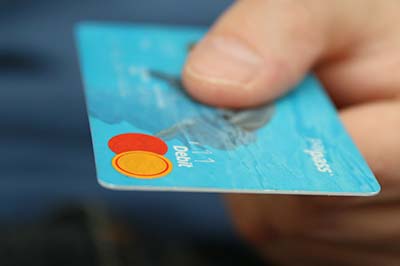
21. Sandals (flip-flops)
Some hostel showers have floors that are even dirtier than your feet. But okay okay, if you are on a budget in the middle of nowehere, you have to take these hostels once in a while.
Even if they look clean, you still might end up getting athlete's foot.
A cheap pair of light-weight flip-flop sandals is essential for hostel showers, especially in humid climates like Southeast Asia. They're perfect for exploring the vibrant cities of Bangkok and Hanoi, or relaxing on the stunning beaches of Thailand and Vietnam.
It is actually always a good idea to travel with open shoes. This way your feet can breath and relax. Wearing closed shoes all the time is not optimal.
So either get a pair of light-weight sandels or flip flops.
What do I travel with? I absolutely love Vietnamese Sandals. I could not find any authentic Vietnamese Sandals to buy online, that is really a pity. If you are ever in Vietnam, they only cost like $2-$5.
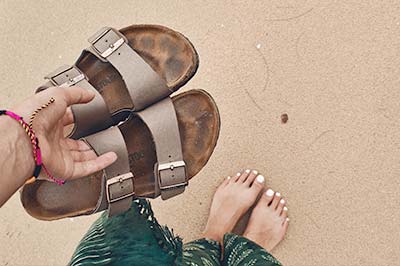
Stuff You Might Want to Pack
Okay, let us move on to the more optional packing part. Please remember you have to adapt this list to your own needs, travel style and destination.
22. Travel Tissue Packs
A valuable multi-use item that works well not just as facial tissue.
It also comes in handy as a substitute for toilet paper, which can be a rare item in some areas, especially when you need it most.
23. Foldable Travel Pillow
Ok, this is something you could live without, but a small inflatable pillow takes up only a little room once it's deflated, and it's so nice on those long train and plane trips.
And it's probably more comfortable than the lumps that pass for pillows in most hostels.
Update: Thanks to a suggestion from our users, we've ditched the inflatable pillow and now prefer a nice real foldable travel pillow. It curls up into a small bundle, and it's very comfortable.
24. Wet Wipes
Convenient for sticky hands after eating, not to mention useful for before eating if you like to avoid getting sick.
You can get generic wet wipes, or the original classic "Wet Ones".
25. Fanny Pack or Hip Pack (no, seriously)
These belt packs have become so "uncool" that few young travels would dare wear them in public, but they can be very useful for a different purpose while travelling.
Use it to hold your toiletries (toothbrush, hairbrush, etc.)
They're just the right size for storing that stuff, but the best advantage is that if the hostel bathroom sink has no counter space or is dirty, you can clip the pack around your waist and still have easy access to everything you need when getting ready in the morning or at night.
26. EXTRA: useful suggestions from Hostelz.com readers
We asked our readers what is the item the do not travel without. We got many answers! Here you have some things you should not forget to pack for your trip:
- sleep mask
- money belt
- hand sanitizer
- 2 photo copies of your passport and plane ticket (leave one copy with someone at home)
- "mole skin" or blister patches for your feet
- important phone numbers (embassy, consulate, relatives at home and in the country visited, credit card companies, etc.)
- sun block
- a sarong (multiple uses including a towel, blanket, bag, or clothing)
- sink stopper plug for washing clothes in a sink
- Travel insurance: It’s not a physical item, but it’s essential for your trip
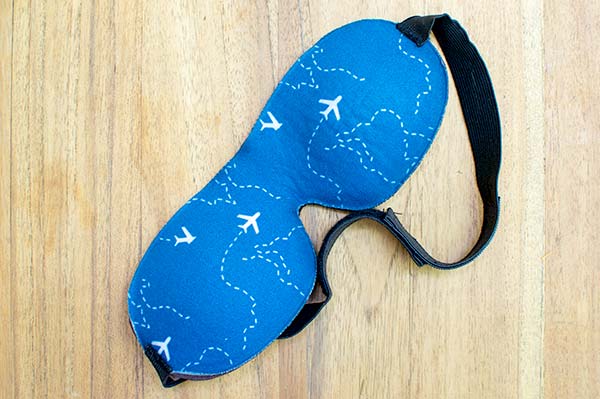
Stuff NOT to Bring and Not pack for hostels
Perfect, you made it this far. This means we have to share with you all the stuff you should skip when backpacking this world and staying in hostels.
Over the years we have seen very very odd stuff people packed. The most curiours object someone travelled with was a big Paella pan.
27. Wheeled Luggage
Wheeled luggage might seem like a good idea, until you find that you can not go more than 10 feet in most countries without hitting steps or some kind of bump that you have to lift it over.
Not to mention that the people behind you are always tripping over it.
You will soon find it's more trouble than it is worth and you'd be better off with a backpack.
The only possible exception might be for travel within the US, since the country's strict laws to help the disabled have made much of the country wheeled-luggage-accessible.
See our backpack recommendations below.
My suggestions: Unless you are posh-packer, travelling to a resort and won't move from there, a wheeled luggage does not make sense. But since you are on Hostelz.com, you are 99% more likely to be an adventurer and backpacker.
So, go and get a good backpack! Here is your recommendation for the best backpacks in hostels.
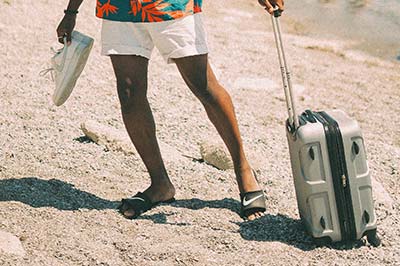
28. Big, Bulky Maps
As mentioned earlier, a map can be super useful in a city.
You don’t have to worry about whether your phone has service or will die soon, and you can stimulate your brain a bit more by actually having to think a bit more critically about where your next moves will be.
Also mentioned above, if you do get lost, it is a good way to have some interaction with the locals.
Most good hostels provide pretty useful maps about the downtown area of whatever city you are staying in, so try to avoid big guidebooks with maps in them, or too-big maps that will get ripped and crumbled in your bag.
Fun Fact: 80% of the guide books like Lonely Planet you find in hostels are in German. Why is that?!
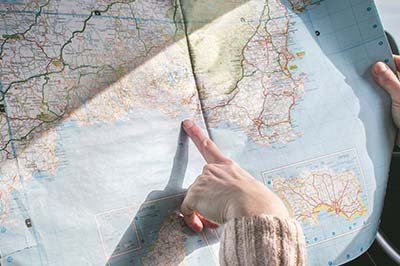
29. Heavy Books
Don't bring your hard cover copy of "The Ultimate Hitchhiker's Guide to the Galaxy"; it will be a 1,000+ page brick that you’ll immediately regret bringing.
Sure a small novella or a small book of poetry would make sense, but if you’re travelling for more than a few days, you’ll most likely be out of stuff to read pretty quickly.
A Kindle or tablet is super practical for a backpacker, and gives you nearly unlimited access to whatever you want to read while you’re on the train or plane or bus.
There is also book-swaps in many hostels. Usually you have to leave one to get a new one. If you do not have one to replace, simply ask the hostel staff. We never got a "no" in that occasion.
Remember: if you never ask, the answer will always be no!
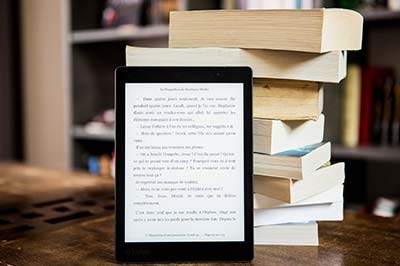
30. Cooking Stuff
Unless you also plan on camping, in which case you can bring this small pot and portable burner.
If you only plan on staying in hostels, any cooking stuff is a pretty unnecessary waist of space in your bag. Most decent hostels will have a shared kitchen and stuff to cook with.
That being said, I love to travel with a small bottle of Olive Oil...yeah, I know. My point is, if there is something you really want to have all the time, like a specific spice, bring it. Unless it is a Paella pan and a German beer glass.
31. Canned Food
Another no-go when it comes to packing your bag. Just buy your groceries in whatever city or town you are in after you check in to your hostel.
My on my very first multi-day hike in the Smoky Mountains, Tennessee, USA, I made the terribly amateur mistake of bringing a couple cans of beans and vegetables.
After climbing up a switchback trail almost 1,000 meters with a pack much heavier than it should have been, I could not differentiate the sweat from the tears, and have cursed cans ever since.
Don't be me, be better. While cans may be great for doomsday prepping, they can be heavy. Always think twice before you pack.
32. Board Games
Like I said earlier, lots of hostels provide board games or chessboards or whatever.
Therefore, do not pack your full-sized Monopoly box because you think it is a good idea to have a marathon of a game that lasts into the morning and ends with some hosteller you barely know flipping the board over in exasperation because they lost Park Avenue.
However, a deck of playing cards or UNO Cards is always a good idea!
It takes up barely any space in your bag, many people in this world know how to play Uno, for instance. It is a simple way to spend a fun night in, have a drink and make new friends.
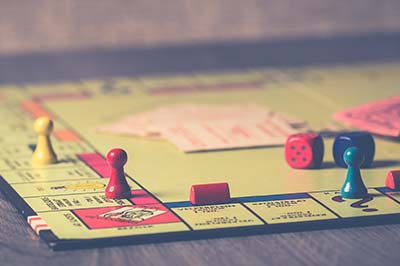
33. The Goldfish
Umm... bad idea.
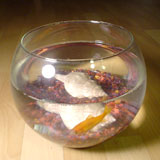
Don't over pack!
The most important thing: DON'T OVER PACK!!!
Almost every inexperienced traveler takes way too much stuff on their first big overseas trip. But almost no traveler complains later than they wish they had brought more stuff. You can buy almost anything you need in almost any country in the world if you realize later you needed something.
I've traveled overseas for 3 months with only a small backpack.
I felt as free as a bird as I easily moved from place to place. I could even spend some time exploring a city without even needing to drop off my luggage at the hostel first. I've seen plenty of travellers in airports and train stations almost in tears because they're exhausted and stressed out over lugging a huge backpack or suitcase everywhere they go. Overpacking be the difference between a carefree vacation and a stressful nightmare.
Ideally, your backpack should just barely fit within the size limits for carry-on baggage on your flight (and it's great not to have to worry about your check-in luggage showing up!). And if you're travelling by train and your bag is small enough, you can stow it on the floor or above your seat rather than the luggage racks at the back of the train car where it can easily be stolen.
How is this possible to do?
The might sound crazy to some of you, but for clothing this is all you need for even the longest overseas trip:
- three shirts
- one pair of long pants ("slacks") or jeans
- one pair of comfortable shoes
- one pair of shorts (guys can use them as swimtrunks too, girls should also bring a bathing suit if needed)
- a few pairs of socks
- a few pairs of underwear (and for the girls, one bra if needed)
- and a light sweatshirt or jacket (depending on the climate).
That's it! Seriously!
Everything should be dark colored everything should go with everything else.
You can wear each thing at least a couple days (everyone does while backpacking, it's ok), and then you wash your clothes about once a week (wear the shorts while doing the laundry, or try the popular technique of washing your clothes while you're wearing them in the shower... it works!).
Lots of backpackers have done it this way, and you can too.
If you decide later you can't live without some extra clothing, you can always buy something during your trip.
Our Backpack Recommendations
These are the key things we look for in a good travelling backpack:
- Small enough to carry-on the plane, and preferably small enough to fit under the seat.
- A good padded waste belt to take most of the weight off of your shoulders.
- Enough pockets to keep your stuff organized.
That's really all there is to it. Here are some of our current favorite backpacks...
- Good: Reasonable number of pockets, inexpensive, fits under the seat in front of you on planes.
- Bad: Ideally it could be a bit larger to fit more stuff, shoulder straps not as padded as they could be.
eBags Mother Lode TLS Weekender Convertible
- Good: Good size, lots of pockets, reasonable price, and the "convertible" design is very convenient.
- Bad: The hip belt isn't padded.
- Good: Plenty of space and possiblity to expand it and make it bigger.
- Bad: The extra space can play against you if you fill it and the airline weight the backpack.
- By far the most popular travel backpack is the Osprey. It comes in different colors and sizes. We recommend the backpack ith 45liters.
- Deuter makes really great, durable backpacks perfect for both hiking and hosteling. Check out their 40-45L backpacks, which are super comfortable and make carrying heavy things much more bearable.
A Note about Booking Hostels
Now that you now what to pack for hostels, let us help you to save money.
In case you are not using Hostelz.com to book your hostels, you are most likely paying too much!
We compare for you all prices on the major hostel booking portals like Hostelworld, Hostelsclub and Booking.com.
Simple by this little hostel hack, you can save $2-$5 per night, easily.
Also, the major booking platforms only show the hostels they happen to work with and each booking website only has availability information for some of each hostel's beds.
Hostelz.com is the only website that lists all hostels worldwide.
We search all of the major hostel booking websites for you to find even the very last available bed, and we tell you where to book it to get the lowest price.
There a reason why we say it's the only hostel website you'll ever need. Give it a try.
You can find more details on why Hostelz.com is your best hostel buddy.
Perhaps you're new to the hostel world? Wonderful, and welcome! We've put together some helpful articles for new and experienced travellers. Have a look:
- Are Hostels Safe? 11 Safety Tips
- When to Book Hostels? For Spontaneous Souls & Pre-Planners
- 17 Tips for Staying & Sleeping in Hostels
- How to find great Hostels
- 9 simple tips for Making Friends in Hostels
Cool read: 5 Reasons Why Working in a Hostel is a Great Idea
Hostelz.com is the world’s most comprehensive hostel-focused travel platform. We bring together listings from all the major booking sites to help you easily compare prices, see real guest reviews, and find the best deals—no matter where you’re headed. Check out our How It Works page.
Not sure which hostel to pick? Use our Hostel Comparizon Tool to compare your favorite hostels side-by-side before you book.
Let us help you travel smarter and sleep cheaper.
Travel Cheaper, Travel Longer
